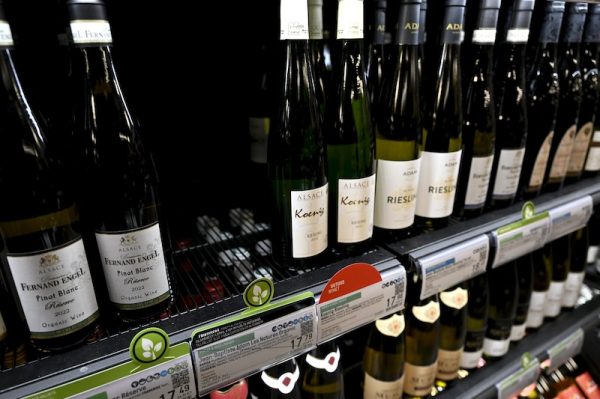
When deciding on the liberalisation of wine sales, the future of spirits sales must also be resolved. LEHTIKUVA
- Previous Article Finland to keep Russian border closed indefinitely
- Next Article Concrete drying live stream becomes unlikely Easter hit
The Finnish government is weighing options to allow wine sales outside the state-run Alko monopoly, according to a newly published report delivered to the Ministry of Social Affairs and Health and the Ministry of Economic Affairs and Employment.
The report, prepared by former competition official Antti Neimala, presents three alternatives for liberalising the sale of wines with up to 15 percent alcohol content: allowing sales in grocery stores, permitting off-premises sales by licensed restaurants, or introducing licensed wine specialty shops.
These options could be enacted separately or in combination.
The reform would mark a significant shift in Finland’s alcohol policy. It follows an earlier change under Prime Minister Petteri Orpo’s coalition, which allowed the sale of fermented drinks up to 8 percent alcohol in regular shops. The issue remains politically sensitive, particularly for the Christian Democrats, a junior coalition partner that opposes further liberalisation.
According to the report, liberalising wine sales would expand consumer choice, reduce prices through increased competition, and improve convenience. Retail availability would rise dramatically compared to Alko’s current footprint, where wine accounts for over 60 percent of total volume sold.
However, the report also warns of serious financial consequences for Alko. An assessment by the Finnish Competition and Consumer Authority (FCCA) found that even a 30 percent drop in wine sales would render the monopoly unprofitable. A decline of 50 to 70 percent, considered realistic based on previous reforms, could lead to tens of millions of euros in losses.
The FCCA also noted that Alko’s cost-cutting options, such as reducing store numbers, staff and opening hours, would not guarantee profitability. Alko has reached similar conclusions in its internal projections.
The state monopoly currently operates with less favourable retail conditions than the grocery sector, which has a twelvefold larger store network and wider opening hours. While Alko stores receive around 50 million customer visits annually, Finnish grocery stores register 580 million.
Alko has responded by proposing its own alternative: allowing Sunday openings and extended Saturday hours. At present, Alko shops close by 6 p.m. on Saturdays and are shut on Sundays and public holidays. The company argued that these changes could help retain competitiveness if broader reforms proceed.
The Neimala report also highlights risks. While not all population groups would consume more alcohol, the reform could increase total consumption and associated harms, particularly among vulnerable individuals. These effects, the report notes, are difficult to predict precisely and would not be evenly distributed.
Public opinion appears divided. In a 2022 survey by the Institute for Health and Welfare (THL), 54 percent supported allowing grocery stores to sell wines up to 15 percent alcohol. By January 2025, that figure had dropped to 42 percent.
The issue also raises broader legal considerations. The report states that any reform must comply with EU law and the Finnish constitution. Finland and Sweden remain the only EU countries with a retail monopoly on alcoholic beverages.
The report was commissioned as part of the government’s broader alcohol regulation review and completed ahead of upcoming budget negotiations. While no concrete policy decision has yet been made, the findings now shift responsibility to lawmakers.
HT
- Previous Article Finland to keep Russian border closed indefinitely
- Next Article Concrete drying live stream becomes unlikely Easter hit
Source: www.helsinkitimes.fi
